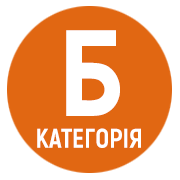CITIZENS’ ATTITUDES TOWARDS THE POLITICAL HERITAGE OF THE FIRST PRESIDENTS OF UKRAINE AS A COMPONENT OF UKRAINIAN NATIONAL MEMORY
DOI:
https://doi.org/10.32999/ksu2786-5118/2023-43-1Keywords:
historical memory, sociological survey, positive and negative balance, presidents of UkraineAbstract
The purpose of the study is to analyse Ukrainians’ assessments of the consequences of the first presidencies of Ukraine after the restoration of independence in 1991. Research methods. Two circumstances determine the research methods. Firstly, the article is based on the data of the first sociological survey of the state of historical memory of the Ukrainian people, conducted in January 2023. Accordingly, methodological techniques for using sociological materials in historical research were applied. Secondly, the survey materials are considered a cross-section of the evolution of the modern historical memory of the Ukrainian people in the specific conditions of full-scale Russian aggression. Results of the study. The data of a sociological survey conducted by a reputable institution based on a correctly formed representative sample create a reliable source for studying the state of historical and socio-political consciousness of Ukrainians in the ninth year of the Russo-Ukrainian war (started in 2014). Naturally, the struggle of the Ukrainian people to preserve the Ukrainian independent state and the very existence of Ukrainians on their territories significantly influenced respondents’ assessments of the political legacy of the first five presidents of Ukraine. At the same time, the war situation reflects a kind of bifurcation point in the progression of historical memory. In general, the views of the polled Ukrainians indicate adequate assessments of Ukraine’s political path from 1991 to 2019. This is reflected in the positive assessments of Leonid Kravchuk (balance of positive and negative assessments is +5%) and Victor Yushchenko (balance +17%) and negative assessments of Leonid Kuchma (balance -5%) and Victor Yanukovych (balance -84%). The negative assessment of Petro Poroshenko (balance -19%) is obviously due to his current presence in public politics as the opposition leader. It is also evidence of considerable differences in respondents’ views depending on their level of education, property status, and region of primary residence. Conclusions. The survey results prove that the process of forming the modern historical memory of the Ukrainian people is progressing, although not without problems. The war significantly accelerated positive changes in historical memory. The materials of the 2023 sociological survey deserve further study and use in scientific works and public policy on the formation of the historical memory of Ukrainian citizens.
References
Верменич Я.В. Локальна історія як науковий напрям: Традиції й інновації історії України. Київ : Інститут історії України НАН України, 2012. 284 с.
Ясь О. Історіографія. Енциклопедія історії України. Т. Україна – українці. Кн. 2. Київ : Наукова думка, 2019. С. 36–50.
Галенко О. Про концептуальні та практичні підходи до створення наративу історії України в рамках часо-просторової або територіальної парадигми. Регіональна історія України. Збірник наукових статей. Київ, 2012. Вип. 6. С. 23–34.
Галушко К.Ю. У пошуках common sense: до дискусії з приводу національного гранд-наративу. Український історичний журнал. 2013. № 1. С. 4–23.
Клаузевіц К. Природа війни / Пер. Р. Герасимов. Харків : Vivat, 2018. 416 с.
Кульчицький С. Помаранчева революція. Київ : Генеза, 2005. 368 с.
Кульчицький С., Мищенко М. Україна на порозі об’єднаної Європи. Київ : Центр Разумкова, 2018. 232 с.
Якубова Л. Д. Рашизм: Звір з безодні. Київ : Академічна періодика, 2023, 318 с.
Віднянський С. Еволюція взаємовідносин України і Європейського Союзу в умовах російсько-української війни та їх вплив на трансформацію українського суспільства. Аналітична доповідь. Київ : Інститут історії України НАН України, 2023. 64 с.
Скляр В. М. Етномовні процеси в українському просторі 1989–2001 рр. Харків : Ексклюзив, 2009. 544 с.
Історія та державно-політична традиція (наукові ресурси). Історична пам’ять: результати соціологічного опитування дорослих жителів України. Аналітичний звіт (січень 2023) URL: https://www.nbnviap.gov.ua/e-biblioteka/naukovi_resursy/istoriya-ta-derzavno-politychna-tradytsiya/istorychna-pamyatresultaty-sotsiolohishnogo-opytuvannia (дата звернення: 10.10.2023).
Кучма Л. Д. Україна – не Росія. Переклад з рос. на укр. Москва : Время, 2004. 560 с.
Центральна виборча комісія. Вибори Президента України 17 січня 2010 р. URL: https://www.cvk.gov.ua/vibory_category/vibori-prezidenta-Ukraine-17-sichnya-2010-roku.html (дата звернення: 07.10.2023).
Центральна виборча комісія. Вибори Президента України 31 березня 2019 р. URL: https://www.cvk.gov.ua/vibory_category/vibori-prezidenta-Ukraine-31-bereznya-2019-roku.html (дата звернення: 10.10.2023).
Центральна виборча комісія. Вибори Президента України 25 травня 2014 р. URL: https://www.cvk.gov.ua/vibory_category/vibori-prezidenta-Ukraine-25-travnya-2014-roku.html (дата звернення: 11.10.2023).



